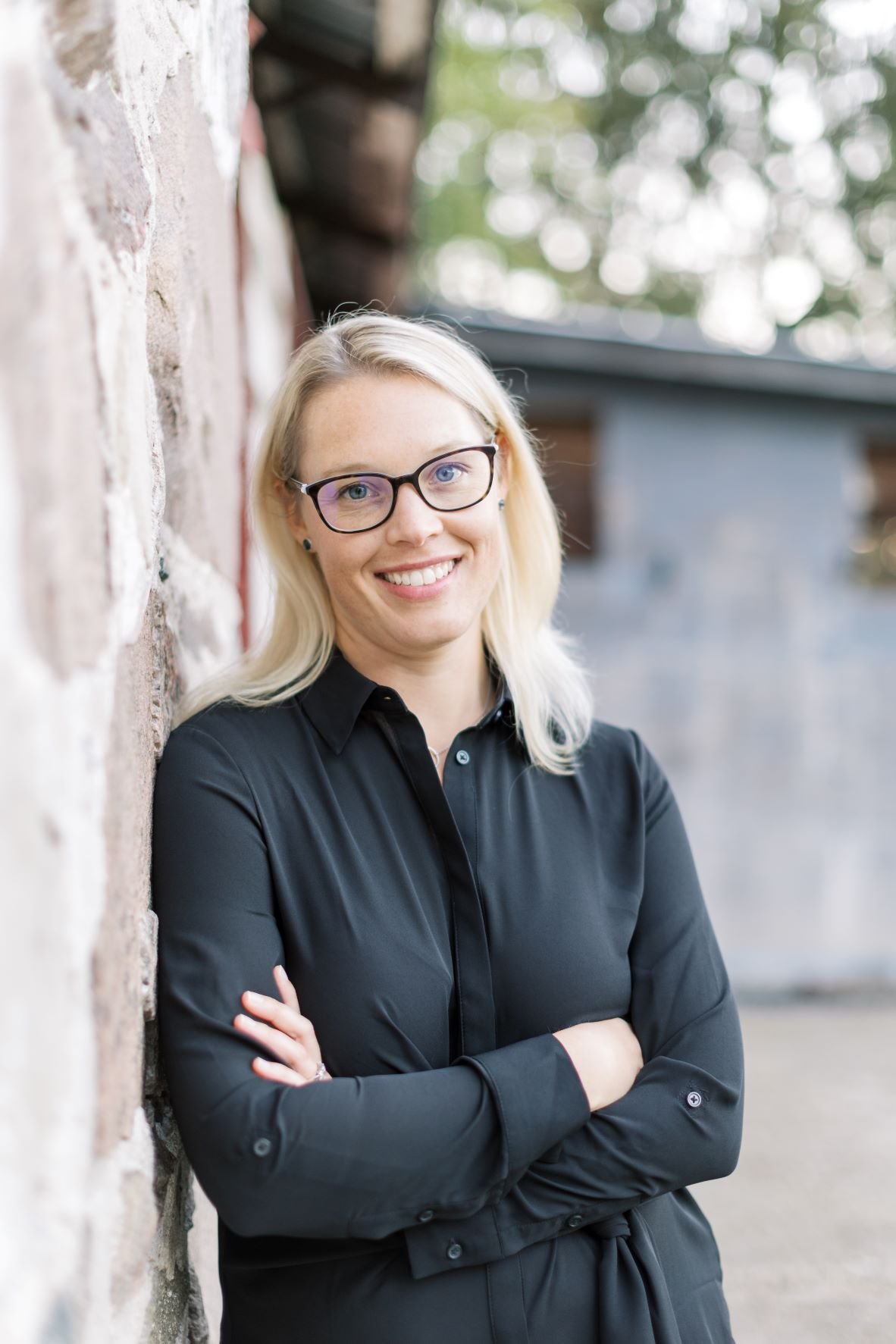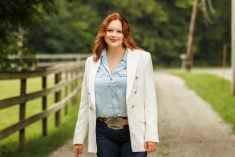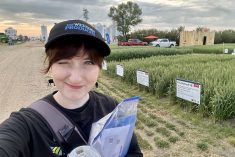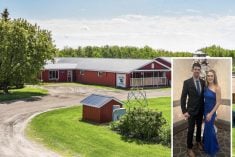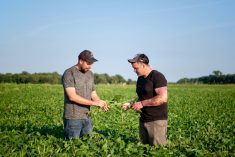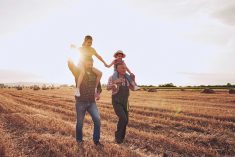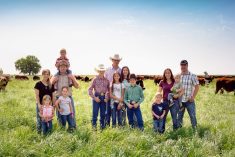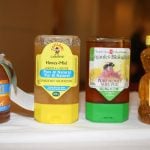Cyle and Erika Stewart have embraced their ability to pivot and take a new approach to ranching on more than one occasion.
They moved their cow herd and entire ranch operation from British Columbia to Saskatchewan in 2017, successfully navigated droughts, and are now focused on finding new ways to improve the management of their land and herd.
Pine Ranch is a commercial cow-calf and yearling operation in Morse, Sask. Erika and Cyle manage the ranch alongside their three young daughters, working together as a family to produce high-quality, sustainably raised Canadian beef. Pine Ranch is Verified Beef Production Plus and Canadian Roundtable for Sustainable Beef certified.
Read Also
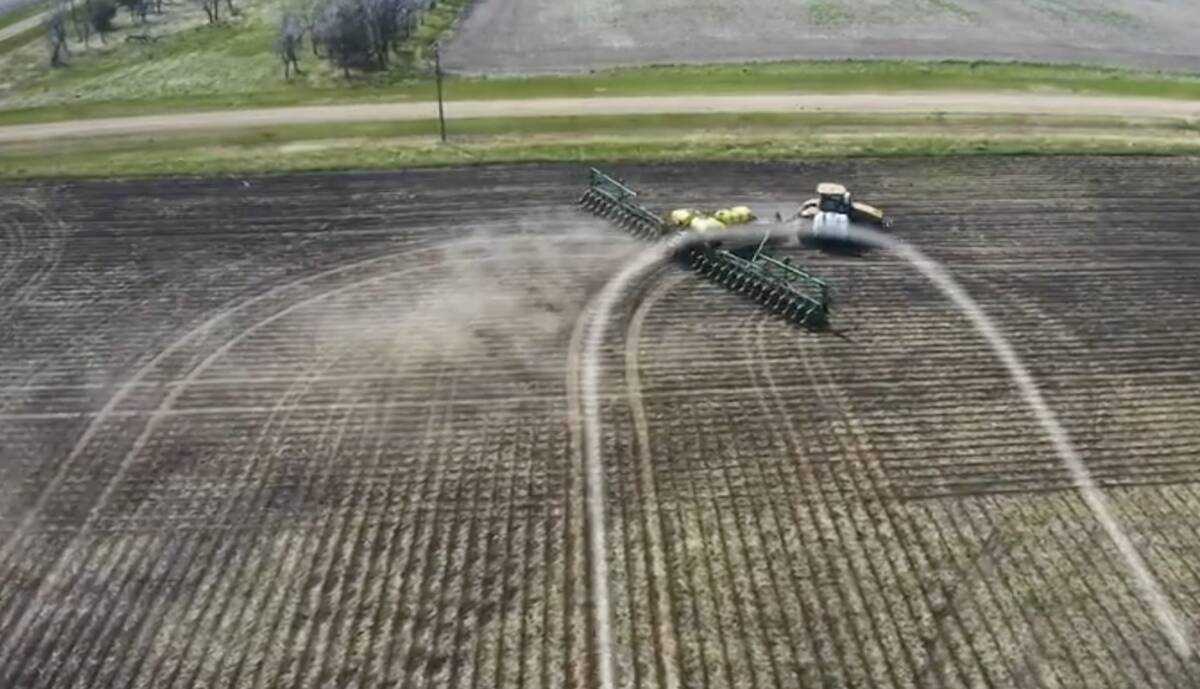
Are farmers ready for the digital ag revolution?
How farmers are using technology to remain competitive, find opportunities and meet challenges.
The ranch spans 5,440 continuous acres of 85 per cent native grasses. Their steers are sold each fall, and the heifers are backgrounded until spring or kept as herd replacements. After extended drought conditions in recent years, the family’s herd size has been reduced to 200 cows and 100 yearling heifers, but they are working to build up their numbers. They are also harnessing new methods of pasture management and improving the biodiversity of their land to help them expand and become more resilient.

Their willingness to transform and adapt is one of the many reasons they were awarded the 2024 Saskatchewan Outstanding Young Farmers award, and they were happy to share their outlook on agriculture, leadership and what it means to find and leverage your “unfair advantage.”
CG: How long have you been farming, and what’s changed since you started?
Cyle: Erika returned to the family ranch in 2012, and I joined in 2014. We used the opportunity to flip our management style when we moved from B.C. in 2017, and we’ve made some major changes again in recent years based on everything we’ve learned since the move.
Dealing with a new ranching environment in Saskatchewan, and especially drought, was new for us, so we are constantly changing. I think we’ve found our groove now, but we’re always open and willing to change and pivot when we need to. No matter what, soil health, cattle nutrition and low stress handling are integral components to our operation.
Erika: There have been plenty of changes outside of our ranch over the years too, like higher costs for everything, including the cost of inputs and equipment. At the same time, cattle prices have gone up.
Consumer perception has changed as well. The consumption of beef continues to stay strong despite higher prices, or the cost to consumers, so it’s great to see their support and demand for Canadian beef. It also appears that consumer trust of what we do and how we raise our beef is on the rise too. But I believe that while consumer support is strong, we still have work to do to bridge the gap between farmers and ranchers and Canadian consumers.
CG: Tell us about your Outstanding Young Farmers experience.
Erika: What a unique experience! It’s not very often that you get to spend time with people from across the country who represent such a wide range of agricultural sectors. Despite the differences in our operations, we were all like-minded and it was amazing to see how much we all had in common. We all have similar struggles and issues, like policy, labour, urban pressure and the rising cost of inputs.
We realized that while we are all different in what we do, we are all trying to innovate and become more efficient. The importance of soil health was a common concern for most of us, and we were able to articulate what we are all doing to make an impact on improving soil health in a positive way.
CG: In your opinion, what makes a good leader?
Cyle: A good leader demonstrates a balance of integrity and adaptability. They must be strong enough to go after goals but be willing to adapt to change to achieve them.
Erika: I believe a successful leader gives others confidence and encourages others. We’ve made it a priority to learn from other leaders, especially through mentorships. Mentorship is huge for me. I’ve had a lot of good mentorship opportunities that have been impactful, like encouraging me to try new things and inspiring new ways of thinking.
There are plenty of industry programs that support leadership and knowledge sharing, and a great example is the Beef Cattle Research Council (BCRC) Beef Researcher Mentorship Program that we’ve participated in. Three years ago, we were partnered with a researcher to help show them our side of the industry as producers, but we ended up learning from each other. It was a fun experience that continues to generate conversations.
We are both focused on continuous education to improve our management skills and maintain biodiversity on the ranch, and part of that education comes from connections, conversations and learning from other leaders.
CG: How do you think your approach to farming is different from previous generations?
Erika: The accessibility of information is a major differentiating factor and advantage for our generation. Older generations tended to stick to their way of doing things because that’s the information they had available. Today, we are inundated with information. We can hear of a new idea, research it, watch a webinar or YouTube video and implement it — it’s that easy to get information.
The availability of information has made it easier for our generation to make big changes on the farm, too.
Cyle: Thanks to technology we are all easily connected. So, in addition to the ability to access unlimited information, we also have a network of people we turn to for advice or to bounce ideas off through countless communications channels.

CG: What does farming look like today compared to when you started out?
Erika: So much has changed for us. A different province, farm management and production practices to name a few. Another change has been the shift from working on the business, not just in the business. It’s not perfect, but we’re trying to make more time to plan and think about the bigger picture. We’ve changed our approach to an emphasis on our goals and values, things that weren’t really discussed before that are now a big part of what we do. We also budget continuing education into our business so we can learn and bring new ideas back to the operation.
Cyle: We’ve both changed, too. We’re more confident and involved in the industry. Getting involved in organizations and industry opportunities has helped us add to our confidence and learn, while opening new networks. Now we’re in a position to give back to the industry and associations who have helped us get to where we are today. And participating in Outstanding Young Farmers is another way to network, learn from each other and give back to the industry.
CG: What is your best advice for young farmers or those coming into “the game”?
Cyle: Find your “unfair advantage” and use it. Your unfair advantage is whatever makes you different from your neighbours or competitors and can be as simple as doing something differently, your farm location or how you approach a challenge. For us, our unfair advantage is that all our land is in one continuous and connected block and that makes investing in infrastructure easier. We bale graze so we don’t have wildlife issues, and we have native grasses that help us mitigate challenges like drought.
Determine your unfair advantage and use it as your perspective when you make changes. Let it help guide your decisions and leverage what you have to be successful.

